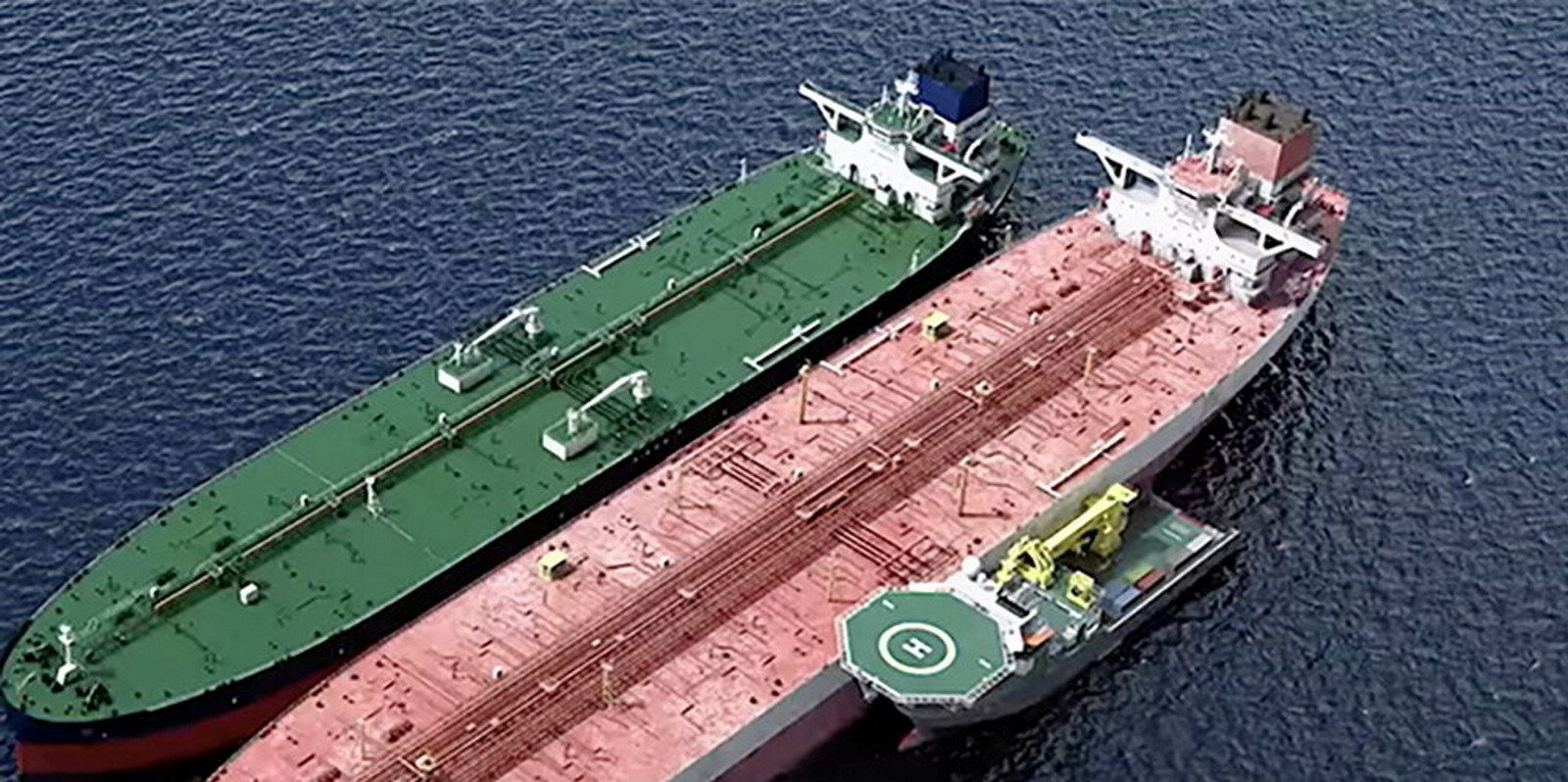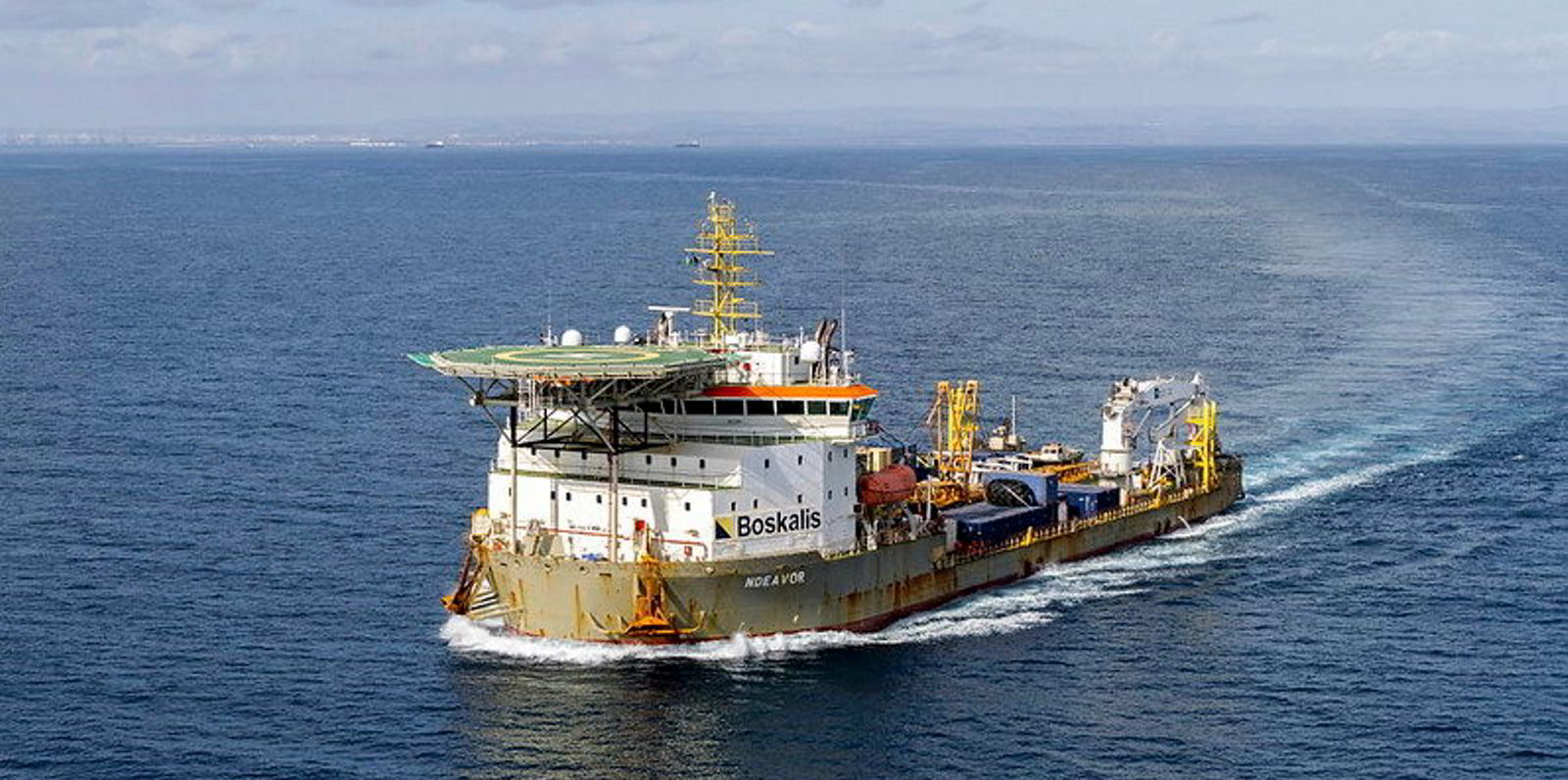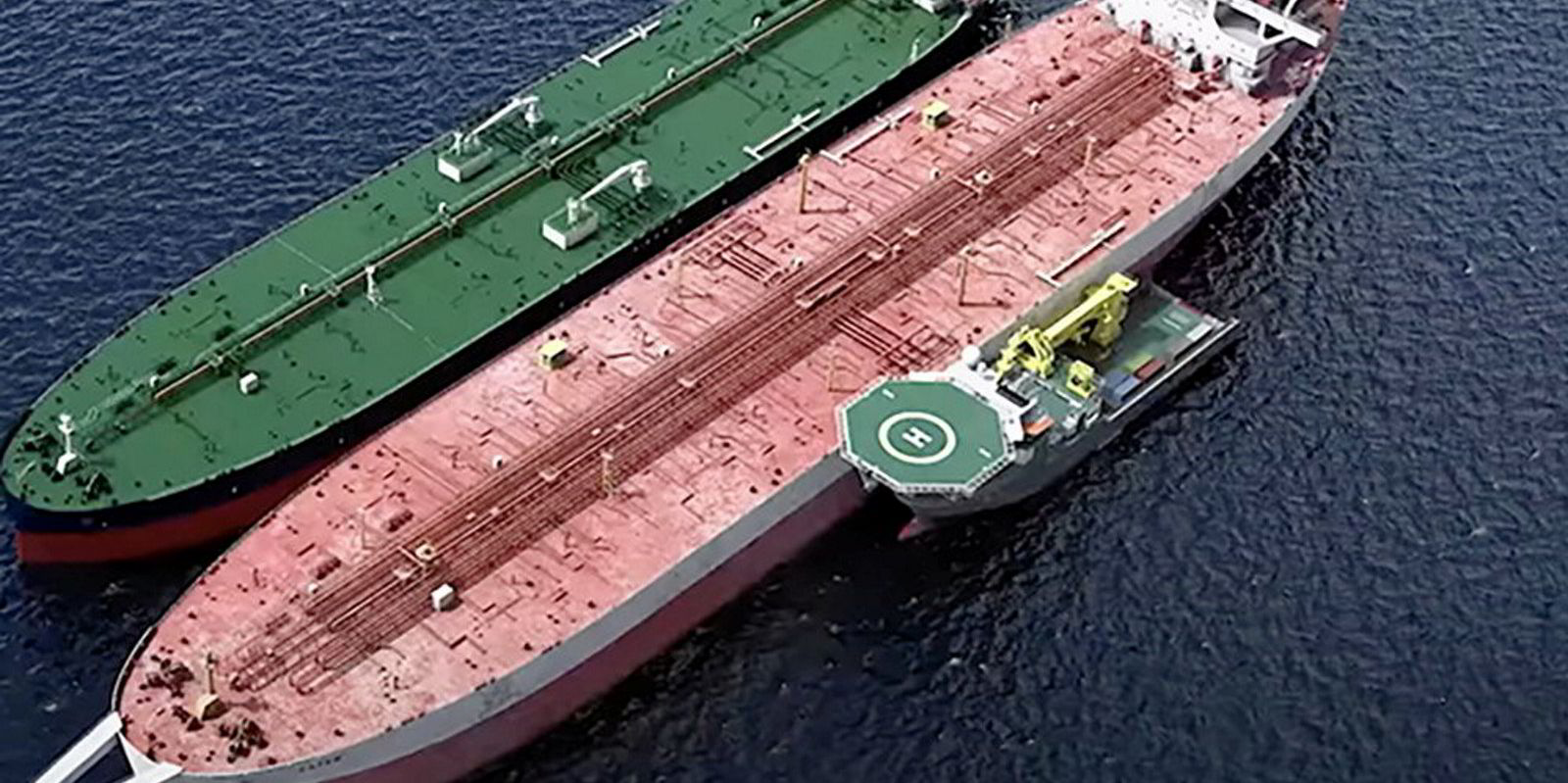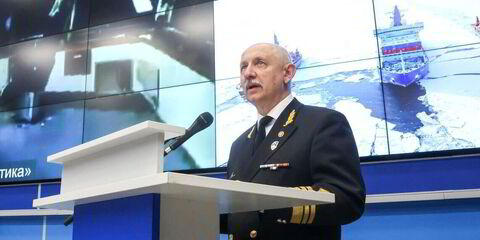A Boskalis multipurpose support vessel is due to arrive off the coast of Yemen this week for an operation to offload more than 1.1m barrels of oil from a decaying tanker.
A salvage team boarded the 99-loa Ndeavor (built 2013) and left Djibouti on Monday for the 48-hour voyage to reach the 406,600-dwt floating storage and offloading unit Safer (built 1976).
The FSO Safer, one of the largest vessels ever built, has not been maintained since the start of the country’s civil war in 2015 and has been described as a “ticking time bomb” that could explode causing an environmental disaster and disrupting one of the world’s most important shipping lanes.
The United Nations has raised more than $100m for the operation but plans for a permanent mooring for the ship’s replacement and scrappage plans remain unfunded.
The sums were enough for the UN to sign a deal with Boskalis in April for the salvage operation and to transfer the oil to the 307,300-dwt VLCC Nautica (built 2008)
The VLCC, bought by the UN from Euronav in a $55m deal, is currently stopped off Djibouti, according to ship tracking data. The work will be overseen by the salvage crew on the Ndeavor.
The UN has estimated that any clean-up operation would cost $20bn with billions more from global trade losses owing to the blockage of the Bab al-Mandab strait to the Suez Canal. It said that 17m people would be affected.
The IMO in April asked member states to send old spill response kits including oil dispersants and rapidly erected storage tanks as the oil transfer operation was “complex and inherently risky”.
The 47-year-old Safer has deteriorated to the extent that it was beyond repair and at imminent risk of breaking up, it said.(Copyright)





